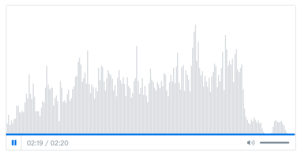Lonesome
This track is about whale song. It opens and begins with them. The guitar is so rich. A spare but driving bass drum. Keyboards walking amiably along with chosen lyrics. Electric guitar recalling, for me, Lyle Lovett. From the first track, spare and elemental, this track is symphonic.
Lonesome—
Lonesome—Always lonesome—
I have heard your lonesome song.Round the fire, come throw your hands up;
dance with us till we can stand no more.Though the rain crash down
around us,and the gale blow out the sun,
sister, when you’re feeling lonesome,call my name—
I’ll sing along.So the road you travel’s wanderin’,
So your worries win you nothin’,Tell me ’bout your troubles, darlin’,
hold a mirror to the setting sun.Though these days of joy and sorrow
wear us out—summer dress!—
brother, when you’re feelin’ lonesome,call my name,
I’ve got a shoulderwhere you can rest.
Lonesome, lonesome—
Sister, when you’re feeling lonesome—Call my name!
I heard your song.Call my name:
I will sing along.
The opening electric guitar makes me think of the 90’s.
There is a delightful and mournful xylophone(?) during “though these days of joy and sorrow…”
After the second invitation to a shoulder, the guitar gets so close and strong. With headphones on, it is almost overwhelming. There is actually a rising throughout , then a drop…followed by two final, lonesome whale songs.

